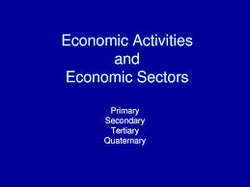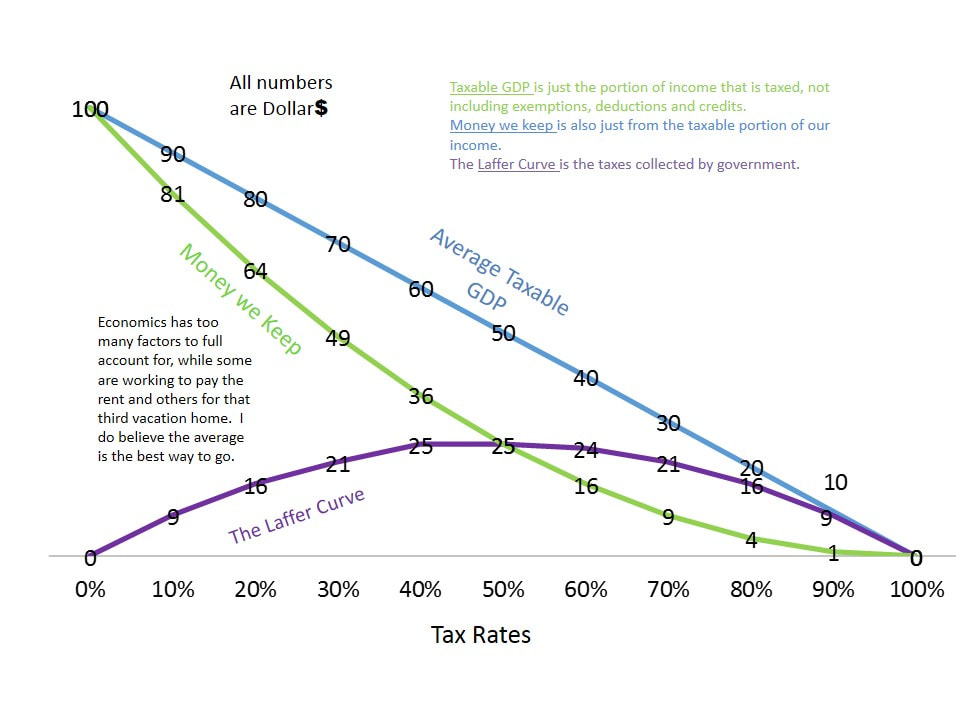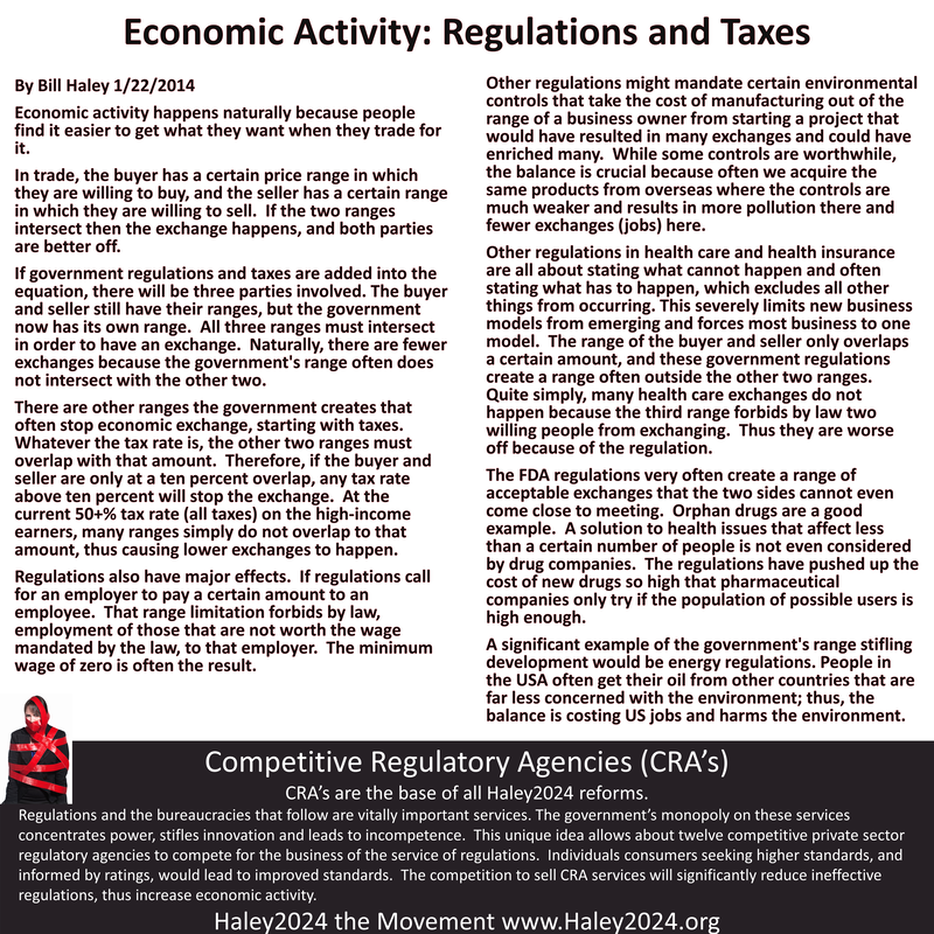Economic activity happens naturally because people find it easier to get what they want when they trade for it. |
If government regulations and taxes are added into the equation, there will be three parties involved. The buyer and seller still have their ranges, but the government now has its own range. All three ranges must intersect in order to have an exchange. Naturally, there are fewer exchanges because the government's range often does not intersect with the other two. |
There are other ranges the government creates that often stop economic exchange, starting with taxes. Whatever the tax rate is, the other two ranges must overlap with that amount. Therefore, if the buyer and seller are only at a ten percent overlap, any tax rate above ten percent will stop the exchange. At the current 50+% tax rate (all taxes) on the high-income earners, many ranges simply do not overlap to that amount, thus causing lower exchanges to happen. |
Other regulations might mandate certain environmental controls that take the cost of manufacturing out of the range of a business owner from starting a project that would have resulted in many exchanges and could have enriched many. While some controls are worthwhile, the balance is crucial because often we acquire the same products from overseas where the controls are much weaker and results in more pollution there and fewer exchanges (jobs) here. |
Other regulations in health care and health insurance are all about stating what cannot happen and often stating what has to happen, which excludes all other things from occurring. This severely limits new business models from emerging and forces most business to one model. The range of the buyer and seller only overlaps a certain amount, and these government regulations create a range often outside the other two ranges. Quite simply, many health care exchanges do not happen because the third range forbids by law two willing people from exchanging. Thus they are worse off because of the regulation. |
| The FDA regulations very often create a range of acceptable exchanges that the two sides cannot even come close to meeting. Orphan drugs are a good example. A solution to health issues that affect less than a certain number of people is not even considered by drug companies. The regulations have pushed up the cost of new drugs so high that pharmaceutical companies only try if the population of possible users is high enough. |









